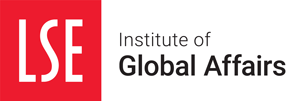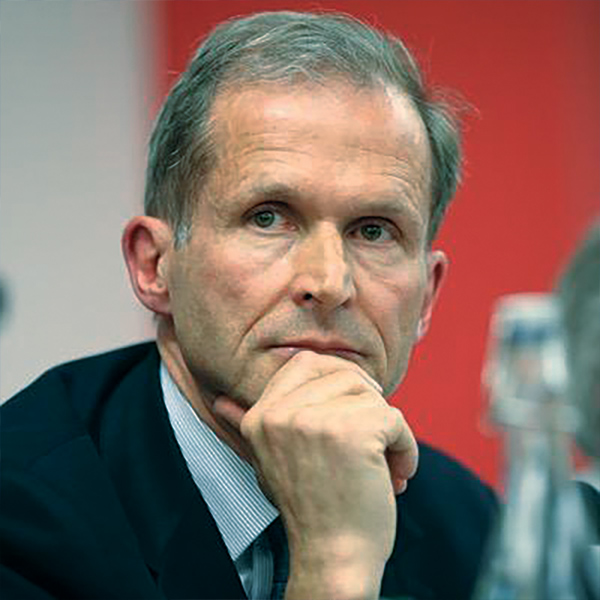GLOBAL POLICY LAB




The ongoing review of the contributions and associated voting rights of individual countries in the IMF—an opportunity to reinforce the global financial safety net (GFSN) – has stalled. The US claims that it does not need more resources – the IMF is “right-sized” – and like Europe does not want voting rights to change. China and other emerging economies, on the other hand, are willing to provide more resources in exchange for increased influence.
The GFSN is essential to prevent or contain the risk and impact of economic and financial crises, and promote economic stability. Whether it consists of national reserves, bilateral support, regional schemes, or multilateral assistance mechanisms, its operation spurs investment and sustainable growth, helping the global financial system work for all. Ensuring it remains “fit for purpose” and effective is an important part of the reforms to the global financial architecture and governance proposed by the G20 Eminent Persons Group on global financial governance.
Financial globalisation has enhanced and reshaped interdependence and increased the demand for a global financial safety net. The IMF-centred safety net of the post-war decades was quantitatively and qualitatively adequate in a world of limited capital flows and mostly national banking. In its current state it does not however respond to the needs of a world of unfettered capital flows, global value chains, market interdependence and international banking. Under such conditions, a global financial safety net must have several coordinated layers which combine to match the potential needs of countries.
Economic and political reasons explain why the IMF alone cannot respond to such needs. Tackling crises may require amounts of financial assistance that exceed by a wide margin what it can realistically mobilise. Whereas the overall pool available has tripled relative to world GDP, IMF permanent resources represent only one-eight of the total resources available, excluding national reserves. In addition, IMF governance also restricts the availability of precautionary support. Similarly, the IMF is not well prepared to provide liquidity support to commercial banks operating in foreign currency – an extension of the traditional role of central banks acting as lenders of last resort in domestic currency.
Massive accumulation of reserves at national level reflects pervasive distrust in the multilateral Bretton Woods system. Reserves-to-GDP and reserves-to-trade ratios have reached unprecedented levels. Preference for such costly self-insurance emerged, most notably in Asia, in reaction to the Asian crises of the late 1990s and the IMF programmes that followed. This reserve buildup was the first major departure from the principle of mutual insurance embodied in the IMF articles of agreement. It signalled that several emerging countries regarded the Fund as excessively driven by the perspective, and even the interests, of the advanced Western countries.
In a significant departure from the established multilateral regime, a three-layered system has come into existence. In addition to national reserves, it consists of:
![]() Bilateral support schemes, especially through swap lines. Such swap lines may serve as confidence-signalling devices, macro-financial support, trade- or currency-promoting instruments, or channels of provision of international currency liquidity to banks;
Bilateral support schemes, especially through swap lines. Such swap lines may serve as confidence-signalling devices, macro-financial support, trade- or currency-promoting instruments, or channels of provision of international currency liquidity to banks;
![]() Regional safety nets to provide financial assistance to participating countries. There are by now seven such arrangements, uneven in terms of size, institutional infrastructure and potential effectiveness, developed in part for resources, in part in response to IMF mistrust;
Regional safety nets to provide financial assistance to participating countries. There are by now seven such arrangements, uneven in terms of size, institutional infrastructure and potential effectiveness, developed in part for resources, in part in response to IMF mistrust;
![]() Multilateral financial assistance through the IMF, in the form of traditional conditional assistance or liquidity provision schemes granted to prequalified countries. Such a system is necessary in a world of deep financial integration with private financial institutions, not only states, needing access to liquidity and with regional spillovers, especially in currency unions, justifying mobilising resources from neighbours and partners. As things stand, however, this network does not constitute a coherent system, in terms of coverage, resources, capabilities and predictability. It is a question whether it will evolve into a coherent system, or degenerate into fragmentation.
Multilateral financial assistance through the IMF, in the form of traditional conditional assistance or liquidity provision schemes granted to prequalified countries. Such a system is necessary in a world of deep financial integration with private financial institutions, not only states, needing access to liquidity and with regional spillovers, especially in currency unions, justifying mobilising resources from neighbours and partners. As things stand, however, this network does not constitute a coherent system, in terms of coverage, resources, capabilities and predictability. It is a question whether it will evolve into a coherent system, or degenerate into fragmentation.

Within the current GFSN, coordination problems are being addressed pragmatically, but difficult issues remain unsolved. Coordinating them raises issues of:
![]() Availability: Commercial, political or geopolitical considerations weigh on the choice of countries to which liquidity lines are being provided by major central banks;
Availability: Commercial, political or geopolitical considerations weigh on the choice of countries to which liquidity lines are being provided by major central banks;
![]() Conditionality: Even if institutions share the same philosophy, the aims, maturity and scope of loans may differ, and so will the associated conditionality;
Conditionality: Even if institutions share the same philosophy, the aims, maturity and scope of loans may differ, and so will the associated conditionality;
![]() Terms of lending: Whereas IMF lending conditions are broadly uniform across countries, bilateral or regional lenders may tailor theirs to programme countries;
Terms of lending: Whereas IMF lending conditions are broadly uniform across countries, bilateral or regional lenders may tailor theirs to programme countries;
![]() Debt relief: Multilateral debt relief granted to insolvent borrowers is in principle based on objective criteria and broadly uniform across countries; this is less true for bilateral or regional lenders, which normally have stronger ties and may be based on economic or strategic interests and even seize collateral instead of participating in a multilateral restructuring;
Debt relief: Multilateral debt relief granted to insolvent borrowers is in principle based on objective criteria and broadly uniform across countries; this is less true for bilateral or regional lenders, which normally have stronger ties and may be based on economic or strategic interests and even seize collateral instead of participating in a multilateral restructuring;
![]() Seniority: The hierarchy of official creditors raises difficult issues of principle, especially when loans were provided at the same time and on the basis of tightly coordinated conditional programmes.
Seniority: The hierarchy of official creditors raises difficult issues of principle, especially when loans were provided at the same time and on the basis of tightly coordinated conditional programmes.
While the central role of the IMF in the global financial architecture is generally regarded as essential, its future cannot be taken for granted. In the current heterogeneous network it is neither dominant nor indispensable. This may affect fundamental principles of the international financial architecture such as equality of treatment and transparency. More fundamentally, the IMF was part of a post-war order characterised by a monetary and financial architecture dominated by the US. Whether this can evolve into a more symmetric multipolar architecture where several currencies coexist and power is more evenly distributed is highly uncertain.
Architecture issues and governance issues cannot be separated. As the dominant veto player, the US exercises overwhelming influence over the IMF but is not willing to increase its resources significantly. China, India and other emerging countries are unlikely to invest much into the future of the institution as long as they feel massively underrepresented in its governance. Europe is a staunch supporter of the Fund but is unwilling to reduce the influence that it currently enjoys within it. Unless addressed as a matter of urgency, this configuration portends the risks of a persistent deadlock in the reform of the international financial architecture and its eventual fragmentation.
Jean Pisani-Ferry holds the Tommaso Padoa Schioppa chair of the European University Institute in Florence and is a Senior Fellow at Bruegel. He is also a professor of economics with Sciences Po and the Hertie School in Berlin. In 2017, Pisani-Ferry contributed to Emmanuel Macron’s presidential bid as the Director of programme and ideas of his campaign. From 2013 to 2016 he served as Commissioner-General of France Stratégie. From 2005 to 2013 he was the Founding Director of Bruegel. Before creating Bruegel, he was Executive President of the French PM’s Council of Economic Analysis (2001-2002), Senior Economic Adviser to the French Minister of Finance (1997-2000), Director of CEPII (1992-1997), and Economic Adviser with the European Commission (1989-92). Pisani-Ferry has taught at University Paris-Dauphine, École Polytechnique, École Centrale and the Free University of Brussels.
George Papaconstantinou is an economist (Ph.D. LSE) who has served government as cabinet minister, member of parliament and MEP. As Greece’s Finance Minister at the outset of the Eurozone crisis, he played a key role in the design and negotiation of Greece’s support programme by the EU and the IMF with its associated economic and financial policies. Subsequently, as Minister of Environment and Energy, he pursued policies to advance Greece’s sustainable growth agenda. In the earlier part of his career, he was a senior economist at the OECD, taught at the Athens University of Economics and Business and consulted for the European Commission and international think-tanks. Since leaving public office, his work has focused on economic and financial policy-related analysis and governance issues. He is currently part-time Professor at the School of Transnational Governance of the European University Institute where he is co-directing the Transformation of Global Governance project, whose aim is to decipher the transformation of global governance under way in a series of fields and assess the effectiveness of the emerging global governance arrangements.